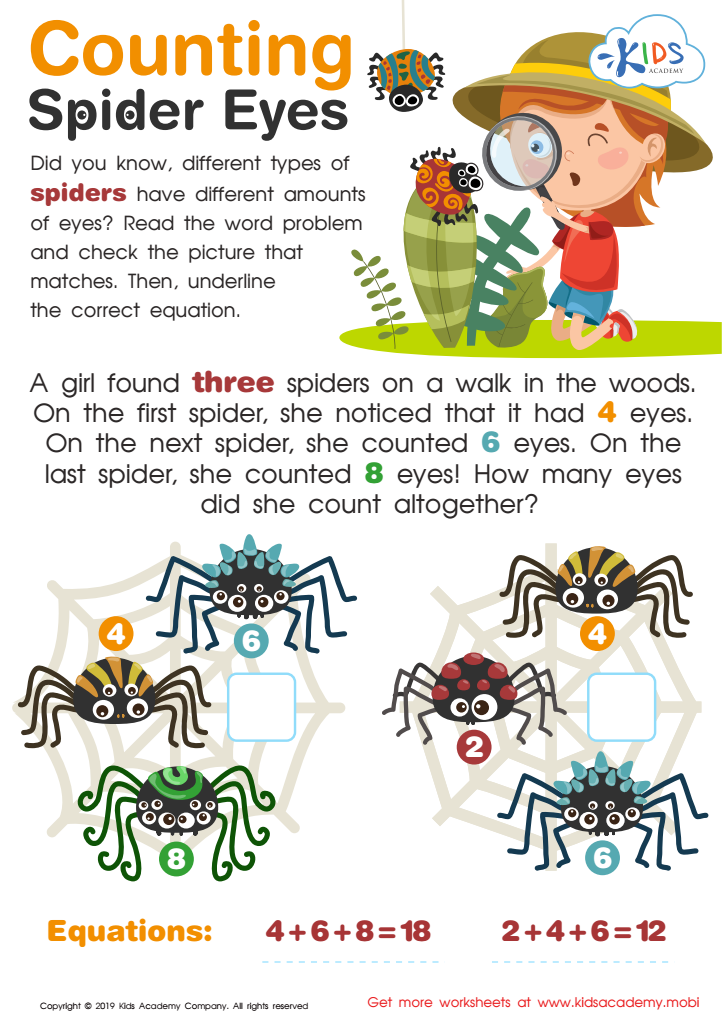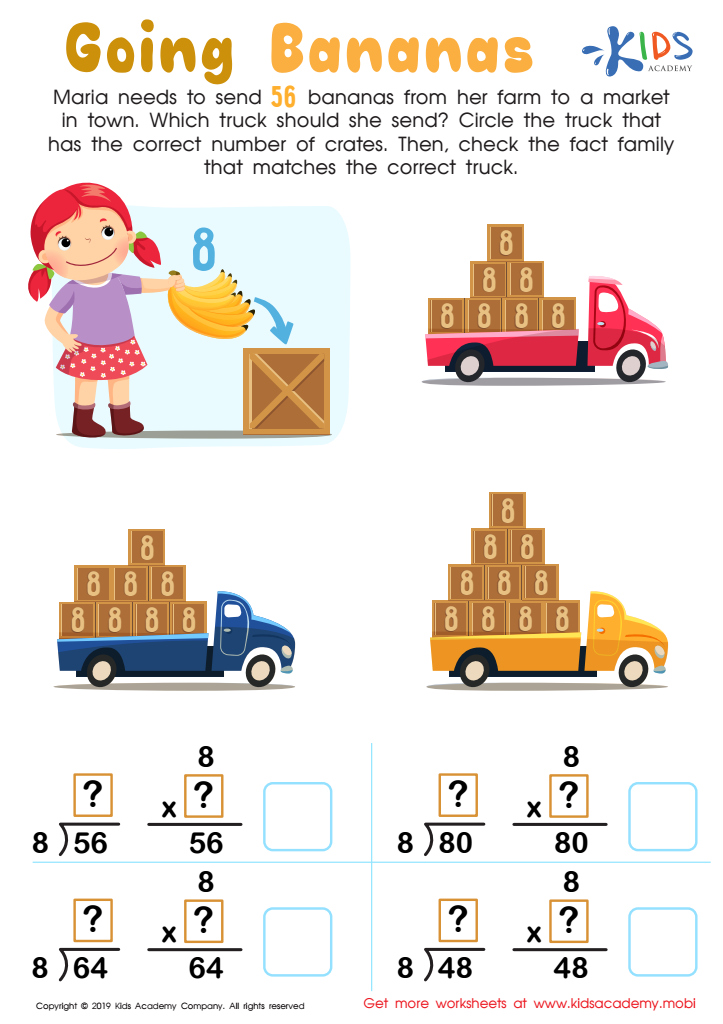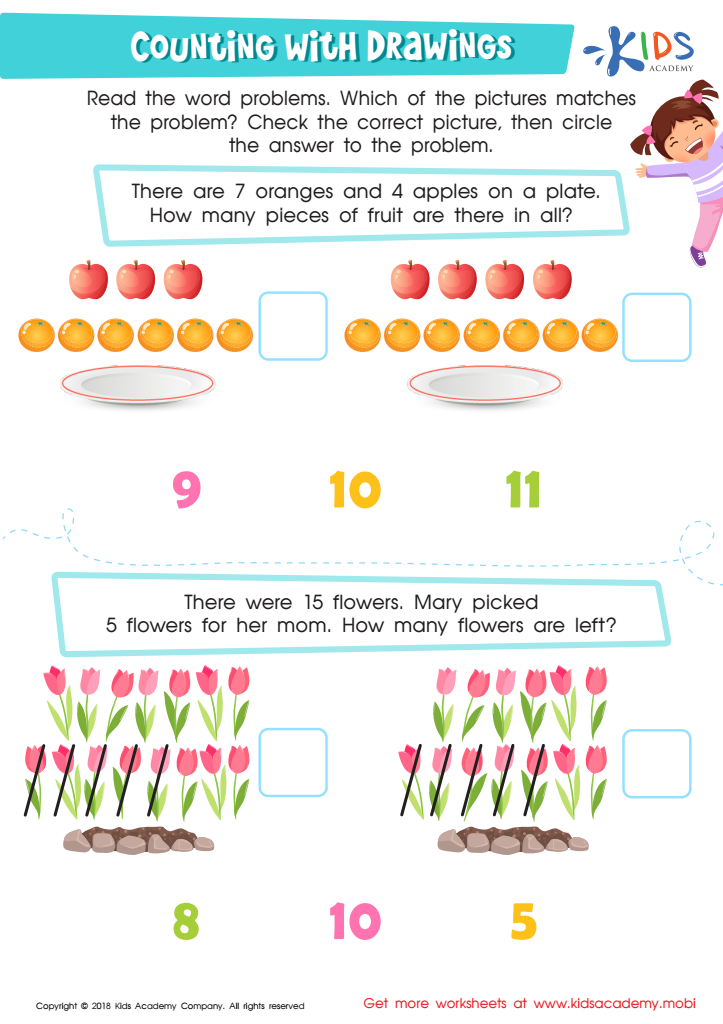Counting skills Normal Word Problems Worksheets for 3-Year-Olds
4 filtered results
-
From - To
Discover our engaging Counting Skills Normal Word Problems Worksheets designed specifically for 3-year-olds! These worksheets are perfect for young learners, helping them develop essential counting skills through fun and relatable word problems. By incorporating everyday situations, children can practice their counting abilities while enhancing comprehension and problem-solving skills. Our worksheets are colorful and visually appealing, ensuring a delightful learning experience for your little ones. Parents and educators will find these resources invaluable for fostering early math skills in a playful, interactive way. Download our Counting Skills worksheets today to provide a solid foundation in counting for your preschooler!


Counting Spider Eyes Worksheet


Adding Flower Petals Worksheet


Going Bananas Worksheet


Counting with Drawings:Fruits & Flowers Worksheet
Counting skills and normal word problems are essential for the cognitive development of 3-year-olds, and both parents and teachers play a crucial role in nurturing these abilities. At this age, children are naturally curious, making it an ideal time to introduce them to fundamental concepts of numbers and quantities. Engaging them in counting activities fosters not only early math skills but also enhances their language development and critical thinking abilities.
Word problems provide a context for counting that makes learning more relatable and engaging. They help children connect mathematical concepts to everyday situations, allowing them to understand the practical applications of counting. For example, asking a child how many apples they have or how many toys they can share with friends encourages them to think about numbers conceptually, which strengthens their problem-solving skills.
Moreover, developing counting skills sets the foundation for more complex math concepts as children progress through their education. By supporting the development of these skills in playful and interactive ways, parents and teachers can instill a love for learning and mathematical thinking that benefits children's overall academic success. Ultimately, fostering counting skills and word problems in early childhood is vital for building confident and competent learners.
 Assign to My Students
Assign to My Students















